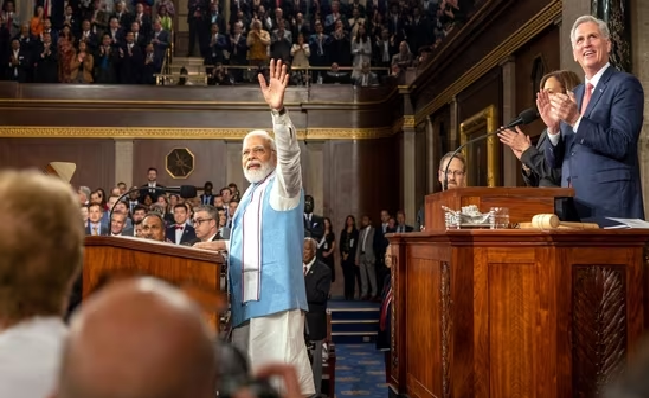CM Mamata holds Centre responsible for Kashmir tourist safety in meeting with Omar Abdullah | Watch
.gif)
.gif)
The Indian Air Force (IAF) is delighted with the GE-HAL F-414 engine manufacturing deal, known as the "Doval Deal," as it offers a technologically superior option compared to the indigenous Chinese WS-10 engine
Concerns over the performance of Chinese jet engines have been raised, with intelligence reports indicating issues with serviceability and downtime in the People's Liberation Army Air Force (PLAAF), the Chinese WS-10 engine, derived from the Russian AL-31, faces performance challenges
The GE-414 engine agreement with General Electric provides a significant boost to India's defense sector, with plans to manufacture around 500 engines for six squadrons of Mark II fighters, aligning with the phasing out of Russian-origin aircraft and the induction of indigenous Tejas series fighters

In a significant development for India's defense sector, the Indian Air Force (IAF) is elated over the recent GE-HAL F-414 engine manufacturing deal, which has been dubbed the "Doval Deal" by US Defense Secretary Lloyd Austin.
The F-414 engine is receiving accolades for its high-performance capabilities, surpassing the indigenous Chinese WS-10 engine in terms of technological superiority. The excitement surrounding the F-414 engine stems from concerns over the performance of Chinese jet engines.
Intelligence reports and assessments indicate that the People's Liberation Army Air Force (PLAAF) is encountering issues related to serviceability, downtime, and overall engine performance. While Chinese fighters such as the J-20 rely on derivatives of the Shenyang WS-10 engine, it is believed that the PLA is currently testing the WS-15 engine for the J-20 aircraft.The WS-15 engine aims to equip the fighter with "super cruise" capabilities, allowing supersonic speeds without afterburners and reducing the platform's heat signature—an essential attribute for stealth fifth-generation fighters.
Experts suggest that the Chinese WS-10 engine is a reverse-engineered version of the Russian AL-31 engine. However, based on the performance of Chinese aircraft in the Pakistani inventory and the PLAAF, it is evident that the engine faces issues despite being operational.
Former IAF chiefs highlight that the Chinese tend to exaggerate the performance of their fighters through state-owned media. The introduction of J-20 fighters during the East Ladakh standoff was primarily intended as a deterrence tactic rather than active combat involvement.
Negotiations between India and the United States for the manufacture of F-414 jet engines, under a 100% transfer of technology agreement, have been ongoing since 2012. The "Doval Deal" was made possible by the combined efforts of former DRDO and IAF chiefs, led by National Security Advisor Ajit Doval, under the guidance of Prime Minister Narendra Modi. The successful outcome of these efforts has earned the deal the moniker "Doval Deal" in Washington.